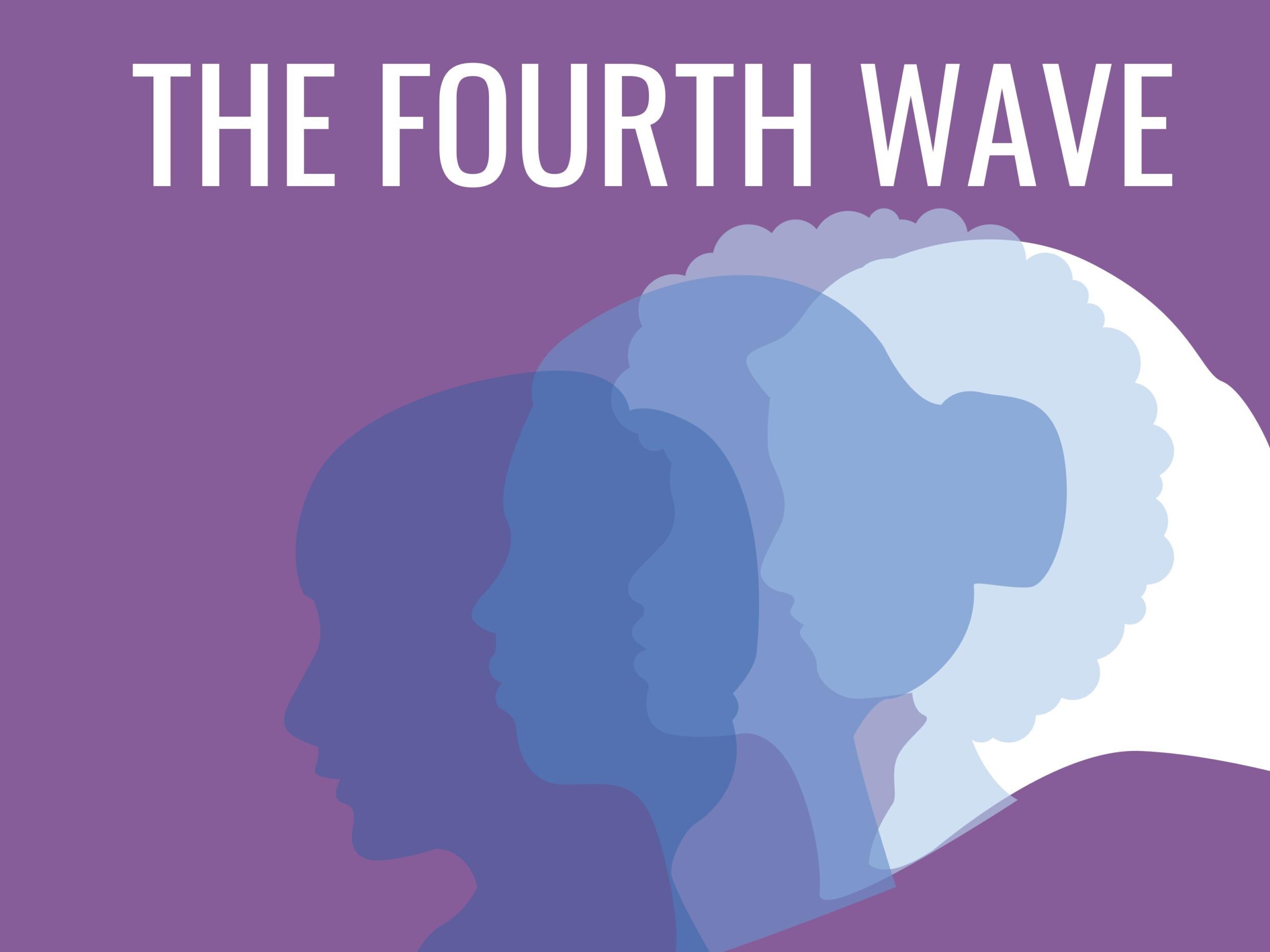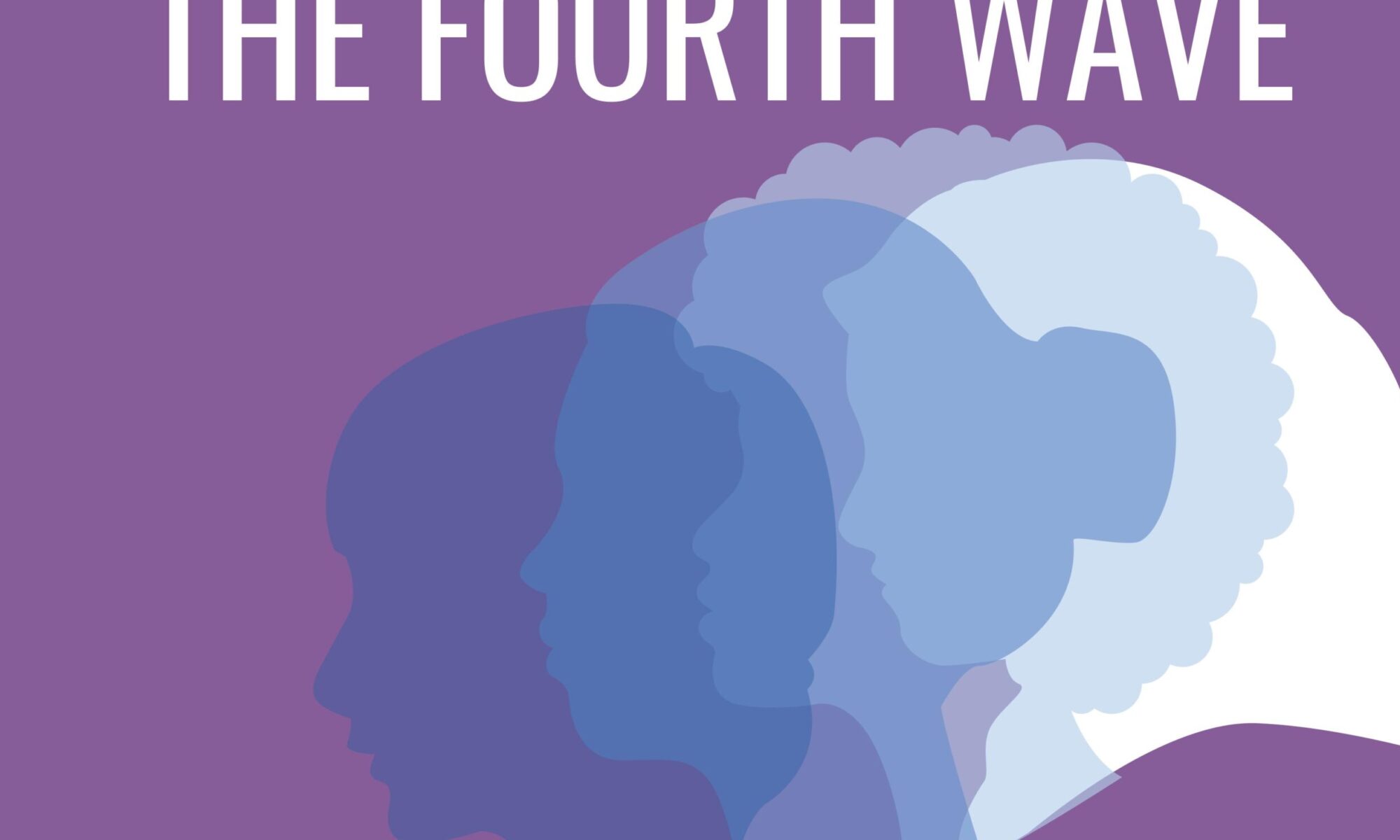
This guest column by St. Thomas Center for the Common Good Senior Program Manager Casey Gordon is part of a series of editorials for Women’s History Month focused on women’s achievements on the St. Thomas campus and the intersectionality of modern feminism.
I’ve been sharpening my definition of what kind of feminist I wanted to be since 1995 when I was 13 and saw Alanis Morissette perform “You Oughta Know” on David Letterman. It was my first introduction to an angry woman, one who didn’t have to be polite and agreeable, which in the Midwest was most certainly a radical act. My commitment to becoming a different type of woman earned me a lifetime of discomfort, and while it hurt a little every time I was called a name or, worse, dismissed, I adjusted my perspective and came to understand that the discomfort meant I was doing something right, that I was becoming a woman who tosses her hair violently on stage and yells about injustice, personal or collective, into a microphone.
When a student I admire reached out to me to write an opinion piece for Women’s History Month, I immediately thought this would be my chance to yell into the microphone about reproductive rights and bodily autonomy. I wanted to write about what it feels like to have abortion-rights values as a foundational part of your identity, what it means to have to show up as only half of yourself in the workplace because of your values, how women in our institution find each other behind closed office doors and whisper in corners of empty halls about how scared we are now that reproductive health choices are being stripped from women and birthing people across the country, and how there are so many of us, maybe even the majority, but there is not space for us to talk about our fears and our anger.
But I’ve carved my feminism into a different shape over the last two decades, and a pointed focus on singular issues such as reproductive freedom or the gender earnings-gap, while important, seem like a reductive form of feminism, one to which I am no longer drawn.
Our continued struggle for reproductive freedom is made stronger if we can see this struggle as one fight in the larger struggle between the powerful and the power-deprived. The awesome magnitude of our collective struggle is currently on display in every direction. I see it in the Molotov cocktails being stockpiled in broad daylight on streets in Kyiv, in the burning of the third precinct, in the resistance of Palestinians being ejected from their homes, in the teachers marching in Minneapolis. This action is born not of aggression but of survival, of an attempt to live or even thrive, of a deep yearning to balance power so we all have the chance to live free in our bodies.
Yet white cisgender feminists – we who are compelled to challenge power structures when there is a threat to our bodies because they are female, but who are free to live comfortably within the status quo because our bodies are white – often fail to see that the struggles outlined above are inextricably bound with our own. Our sympathies are clouded by politics and dictated by a media dedicated to upholding the status quo, a practice we have most recently seen on display in the coverage of the Ukrainian refugee crisis. We take action in the name of white mothers forced to make excruciating decisions due to a grotesque power imbalance, but we stop short of doing so for, say, mothers trying to cross our southern U.S. border to find safety and opportunity. When those who suffer are Black, Indigenous, Asian, transgender or poor, we call these issues complicated, which is not wholly untrue but is purposefully obstructive, as the desire to live free and authentically is simple and universal.
Much modern discussion revolves around feminism’s relevance, and I admit I ask myself this question often. But feminism only becomes irrelevant if we limit its scope and see it only as a struggle for women’s equality. It is important for feminists, particularly for white, cisgender feminists, to celebrate this shared fight to balance power wherever we see it. If our collective responses continue to be decided based on whether or not our leaders identify with the victim or the aggressor, then we will pray for Ukraine while wringing our hands about Palestine and making false equivalences when we pray for Amir Locke and the NYPD in the same breath.
The feminism that will survive all of us is a feminism that supports all people fighting for freedom from patriarchy and white supremacy.
Article courtesy of Casey Gordon, senior program manager at St. Thomas’ Center for the Common Good.



